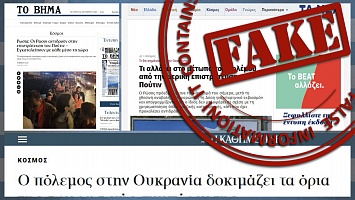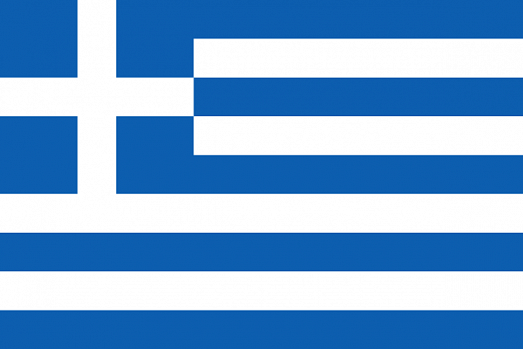 Греческая Республика
Греческая Республика
Digest of misleading publications on Russia in the Greek media (September and October 2022)
The Greek media continue to try to promote clearly biased stories on Russia’s foreign and even domestic policies. The unsubtle trace of Western manipulation is poorly disguised as Greek media outlets often do not bother to conduct their own analysis and merely republish questionable US content.
For example, Kathimerini shared several propaganda pieces from overseas journalists, distorting and discrediting the goals and progress of the special military operation in Ukraine. For example, the quote “since then, Russia’s war against Ukraine has gone worse for Moscow than expected and Russia has faced humiliating military failures” fully cites a piece from The Washington Post.
The newspaper used a similar approach with an article from The New York Times: “The revelations about Russia’s difficulties belie the Kremlin’s narrative about an invincible Russian army” (a reprint of Putin’s Myths Dispelled by Retreat of Russians, from The New York Times).
The newspaper Ta Nea follows the same course of reprinting anti-Russia articles from mainstream media in a month-old “analysis” by BBC focused on the allegedly deplorable state of affairs in the military operation zone.
The Greek media are also interested in what the Russian public thinks of the special military operation; however, they cover the topic from a clearly subjective angle that is far from the standards of objective journalism. An article also published by Ta Nea covers the progress of the partial mobilisation in Russia – but completely ignores the public voluntary conscription movement and the many acts of patriotism in Russia. The authors reach conclusions about sentiments in our country based on a brief interview with a man named Alexander, conducted via a messenger.
To Vima scared its readers with horror stories about “riots” in Russia after Vladimir Putin’s announcement of the partial mobilisation.
As earlier noted in a comment by Foreign Ministry Official Spokeswoman Maria Zakharova, the Greek media are strongly influenced by the agenda imposed by US-led Western countries. Therefore, the topic of alleged Russian attempts to interfere in the parliamentary elections in Greece continue to surface in the media, based solely on American pseudo-conclusions. On the same politically motivated considerations, the media continue to harp on the story of Russian businessman Konstantin Malofeyev who in 2016 allegedly funded certain television networks he controlled at the time “to widely broadcast Russia’s views on Greek television.” It can be assumed that the main reason this businessperson, who by extraordinary coincidence is included on US sanctions lists, has caused concern is because his stance on Crimea and humanitarian activity is inconvenient to the allegiants of the West. (To Vima, Ta Nea)













